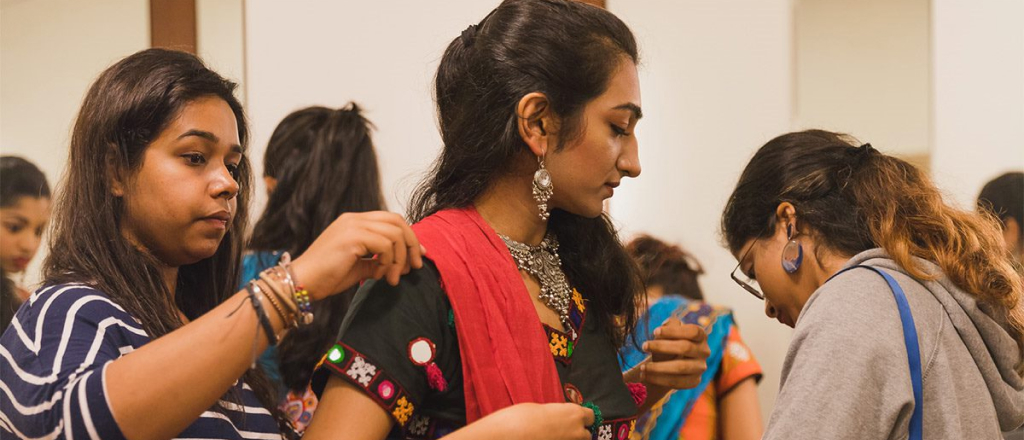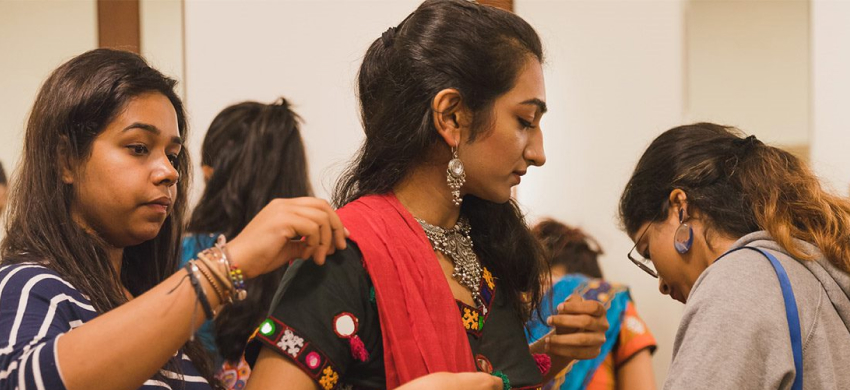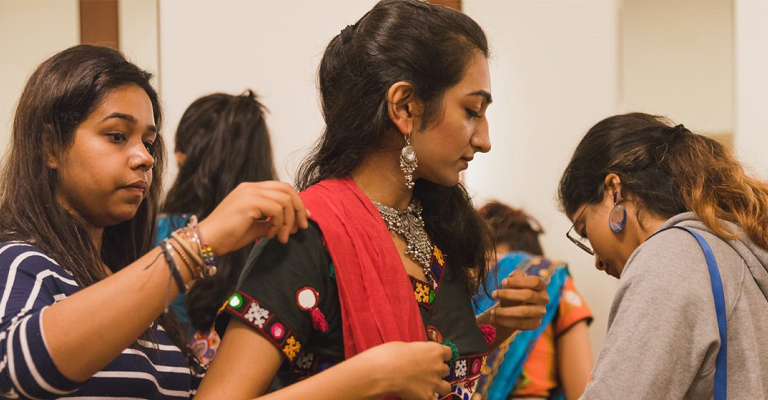These procedures have been developed specifically for managing alleged violations of the Community Standards. As a fundamental premise, all proceedings conducted pursuant to these policies and procedures, and most especially with regard to instances of alleged sexual misconduct, will proceed with the highest regard for confidentiality to the maximum extent possible. Below is an overview of the procedures.
a. Upon request of any student, faculty, staff member, or guest of the College, a member of the Student Affairs Office may investigate an allegation of a breach of the Yale-NUS Community Standards. In limited serious circumstances, community members external to Yale-NUS may also submit a complaint directly to the Community Standards Coordinator, Ashley Yong, who will assess these reports on an individual basis to decide if a conduct case will be opened.
b. To initiate the process, a report of the alleged violation should be submitted via the Incident Reporting System.
c. If, in the judgment of the Community Standards Coordinator or their designee(s), grounds exist to believe that a student would benefit from education on a topic related to community behaviour, the Community Standards Coordinator may assign a student to a one-on-one meeting and an educational process or programme to address the concern. No conduct history will result from such an assignment, but failure to complete the assignment could result in subsequent charges. Repeated instances of such behaviour may be the subject of subsequent charges.
a. Upon the receipt of an incident report, the named student(s) will receive a Meeting Request and will have three calendar days to schedule a meeting as directed in the Notice. The request will contain a statement of the potential breaches and a summary of the facts upon which they are based including the date and location of the incident. If a student does not respond to a Meeting Request, the student may receive a finding, and outcomes, in absentia.
b. The student’s Assistant Dean (AD), or an appropriate designee, will be available for advising and students can consider meeting their AD for support.
c. The Community Standards Coordinator will work directly with the student(s) involved to decide on an appropriate date/time for the meeting.
a. The student(s) will meet with a designated facilitator to discuss the nature of the alleged violation noted in the Meeting Request, the student’s responsibility for the allegations, and the options for resolution.
- The designated facilitator will open the meeting by reading a statement of the charged student’s name and describing the alleged violation, using the meeting request letter that was sent (noted in section 2a).
- The student(s) will be invited to describe what happened from their point of view and share any additional information that would be pertinent to the resolution of the incident.
- The facilitator will use guided questions to discuss the incident in more depth, including analysing how/if harm was caused, whether the incident constitutes a breach in guidelines, and understand motivations behind the behaviour.
- The facilitator and student(s) involved will work together to determine if there is responsibility on the part of the student(s) named in the incident.
- If responsibility is determined and/or if the student accepts responsibility voluntarily, the facilitator and student will work together to decide on appropriate outcomes. The outcomes will be focused on individual and community growth, harm reparation, and accountability.
- If the charged student(s) does/do not agree with the outcome or believes there has been a procedural error, they can submit a single written appeal to the Dean of Students within three (3) calendar days.
- The facilitator will then follow up as appropriate on sanction completion. The record of the meeting and its outcome will be kept in accordance with the College’s policy on confidentiality of Integrity & Discipline records.
In the event that a student is placed on interim suspension, they are still able to participate in dispute resolution proceedings. In situations where a student is under investigation by the police or any other external body to Yale-NUS, students may also be placed on interim suspension pending the outcome of those investigations. An interim suspension may be imposed for up to 1 academic year or 2 consecutive semesters; after this time frame has elapsed, the interim suspension will need to be reviewed. The interim suspension period is counted towards the student’s 5-year candidature.
The facilitator of the conference, in collaboration with the student(s) involved, will make decisions as to responsibility. If there is agreement that responsibility does not exist for the student(s) involved, the student(s) will receive a follow up letter indicating there is not responsibility and the conference will be closed.
If the student(s) and facilitator decide that the student(s) is/are responsible for the alleged breach, they will work together to design appropriate outcomes. The student(s) will have a strong voice in determining their own outcomes. Outcomes should aim to facilitate growth, educate themselves or others, reduce harm that was caused, and hold the student(s) accountable for their actions.
- Not responsible: The student has not violated a College policy.
- Responsible: The student has violated a College policy and appropriate sanctions will be assigned accordingly.
- Complicit: While a student was initially suspected of being in direct violation, it is now clear the student witnessed, was present at, condoned, or hosted/encouraged a situation for a policy violation to occur.
If the facilitator believes that a student’s conduct warrants suspension/dismissal from Yale-NUS College, they will make a recommendation to the Dean of Students. The student(s) will be informed of this as well. The Dean of Students will convene a Dean’s Committee to review the case, and the student will need to attend the committee meeting. This committee will be chaired by the Dean of Students and will consist of two additional staff members (one of which will be the Community Standards Coordinator) and two faculty members (appointed by the Dean of Students). Students can bring an advisor to the Dean’s Committee meetings for support. The advisor does not interact with the Committee. This advisor can only be from Yale-NUS College.
A general overview of the Dean’s Committee proceedings are noted below:
- The student will state if they are responsible or not responsible for each alleged violation of the Community Standards. The Respondent can then share an opening statement to the Dean’s Committee.
- The Committee will then have the opportunity to ask questions of the student.
- The Respondent may call in witnesses during the hearing, whom the student and the Committee can question.
- Closing statement from student.
- The Dean’s Committee will have an internal discussion to determine responsibility and possible sanctions, and share with the student immediately upon making the decision.
- Students will have 3 days to consider to accept or appeal on sanctions.
The Dean’s Committee will make all decisions regarding suspension/dismissal and case outcomes from the College for community conduct reasons.
If students wish to appeal the decision of the Dean’s Committee, they may do so by submitting a written letter to the Vice President, Academic Affairs (VPAA) within seven (7) calendar days of the receipt of their sanctions. The VPAA can decide to uphold, add, or dismiss the recommended sanctions. There is no further appeal after this. Reasons for appeal must include one or more of the following: (1) procedural error (2) new evidence coming to light (3) severity of sanctions.
Please see the definitions below:
- Suspension: Suspension will be determined for a specific length of time. Suspension means a student is unable to take any classes, participate in any activities, or be involved with Yale-NUS College in any way. Suspended students may not use the College facilities.
- Dismissal: Students who are dismissed from Yale-NUS College will need to immediately leave the College and will not be able to return. They will no longer be considered students of the College.
Student Misconduct Disciplinary Hearing Procedure for Yale-NUS College Double Degree Programme (DDP) and NUS Concurrent Degree Programme (CDP) Students
This student misconduct disciplinary hearing procedure applies specifically to Yale-NUS College DDP and/or CDP students who have been alleged to have committed a conduct violation determined by Yale-NUS College and/or NUS to be a serious violation. For the avoidance of doubt, this procedure shall not apply to Yale-NUS College single degree students or Yale-NUS College students pursuing a CDP or special program with Yale University, as such students will be subject to the Yale-NUS College’s and/or Yale University’s prevailing procedures.
This procedure covers serious misconduct cases that arise from alleged student violations of Yale-NUS College and/or NUS policies, rules and regulations including those relating to sexual misconduct, academic misconduct, and breaches of the code of student conduct. The determination of the YNC President and the NUS Provost, as to whether an alleged violation is serious and should be heard by this Misconduct Committee, shall be final and binding. If the violation is determined to be less than serious, Yale-NUS College’s prevailing procedures will apply.
For serious sexual misconduct violations, the NUS Sanctions Framework for Sexual Misconduct Offences will apply, with references to the Board of Discipline to be read as references to the Misconduct Committee and references to the Disciplinary Appeals Board to be read as references to the College Appeals Board and such other necessary modifications.
Yale-NUS College can conduct investigations of Yale-NUS College DDP and/or CDP students who have been alleged to have committed a conduct violation, as well as the authority to issue No Contact Orders to such students. In conducting the investigations, Yale-NUS College will establish close communications and collaboration channels with the NUS Office of Campus Security.
Yale-NUS College DDP and CDP students subjected to a disciplinary hearing before this Misconduct Committee will not be subject to subsequent disciplinary hearings or actions by the NUS Board of Discipline or the Yale-NUS Dean’s Committee.
Misconduct Committee
Where the student subjected to the disciplinary proceedings is a student enrolled in a Double Degree Programme (DDP), or a Concurrent Degree Programme (CDP) at both Yale-NUS College and at a NUS School/Faculty, the Misconduct Committee shall consist of the following persons, excluding anyone who is materially interested in the outcome of a case, or was involved in any prior determination of the case:
- Chairperson: The Dean of Students of Yale-NUS College, or the Dean of Students of NUS, to be determined in consultation with the NUS Provost;
- Members: Four members comprising:
- Two members from Yale-NUS College appointed by the Yale-NUS College Executive Vice-President, Academic Affairs; and
- Two members from NUS appointed by the NUS Provost.
College Appeals Board
Where the student subjected to the disciplinary proceedings is a student enrolled in a Double Degree Programme (DDP), or a Concurrent Degree Programme (CDP), at both Yale-NUS College and at a NUS School/Faculty, the College Appeals Board shall consist of the following persons, which shall exclude anyone who is materially interested in the outcome of a case, or was involved in any prior determination of the case:
- Chairperson: The Yale-NUS College Vice President, Academic Affairs or an NUS Vice Provost, to be determined in consultation with the NUS Provost; and
- Members: Two members comprising:
- One member from Yale-NUS College appointed by the Yale-NUS College Vice President, Academic Affairs
- One member from NUS appointed by the NUS Provost.




